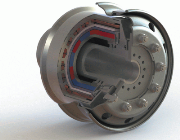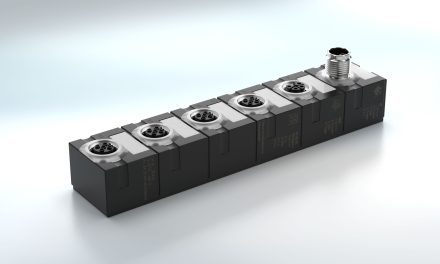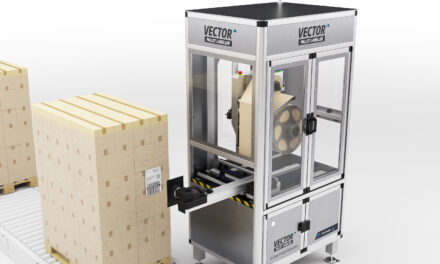 A new Pseudo Direct Drive (PDD) has been developed which offers a step change in continuous torque density, allowing the motor to directly drive many industrial process and control loads where a motor and gearbox combination would typically be employed. Dr Richard Clark, research director at Magnomatics, looks into the technology
A new Pseudo Direct Drive (PDD) has been developed which offers a step change in continuous torque density, allowing the motor to directly drive many industrial process and control loads where a motor and gearbox combination would typically be employed. Dr Richard Clark, research director at Magnomatics, looks into the technology
A direct drive technology has been developed by Magnomatics that is now beginning to realise its full potential in many industrial solutions, challenging applications of standard electromagnetic topologies such as motors, generators and actuators.
The Pseudo Direct Drive PDD technology is a type of motor/generator capable of achieving ground-breaking continuous torque densities. The change in torque capability delivers a compact direct drive solution through the use of integral magnetic gearing. Not only does this offer high levels of efficiency, but other benefits include prevention of failure mechanisms such as jamming, and reduced levels of drive train noise and vibration.
In many challenging applications, significant performance benefits can result from replacing the motor and gearbox with a direct drive motor. Primarily, efficiency is improved due to the removal of gearbox losses and gear wear is eliminated, but in addition there is also a lack of lubrication, reducing servicing requirements and the potential for oil leaks.
The PDD motor overcomes the torque density limitations of conventional direct drive permanent magnet motors by exploiting a mechanically and magnetically integrated passive magnetic gear which acts as a speed-reducing, torque-increasing transmission without requiring lubrication. The resulting motor offers superior torque density, enabling reductions in motor frame size for a given load.
An inner high-speed permanent magnet rotor and outer stator carrying windings act as a conventional permanent magnet brushless DC or AC motor. The rotation of the high-speed inner rotor is magnetically geared to give a high-torque, low-speed output on a second, low-speed rotor.
The key benefits of the PDD are: high torque density (hence compact machine for given torque); high efficiency across a wide operating range; removal of a mechanical gearbox; reduced servicing requirements; very low vibration and acoustic noise; no, or minimal, cooling required; high power factor operation; and it uses standard ‘off-the-shelf’ power electronics/drive technology.
Development
In collaboration with a major European commercial vehicle OEM and several key suppliers, Magnomatics has successfully developed a PDD machine with a continuous rated torque capability of 4000Nm, suitable for packaging within a standard 22” truck wheel for hybrid commercial vehicle applications. It has a rated output speed of 750rpm and an efficiency of over 97% at rated load. This development was part funded by the Technology Strategy Board (TSB).
The resulting machine has a torque density of 80kNm/m3, which is over four times greater than an equivalent direct drive permanent magnet motor. In testing, the machine has surpassed expectations for performance and efficiency.
The PDD solution is highly scalable and provides a solution for where consideration is being given to a variable speed drive to better match the drive to varying load requirements to reduce energy consumption.
Suitable applications are currently being found in renewable energy, automotive, commercial vehicles, marine propulsion, aerospace, industrial pumping and many other industries where compact, high torque direct drive motors and flexible transmission technology are demanded.



